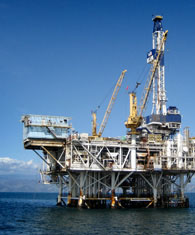 Shares in Bahamas Petroleum (BPC) have soared more than 40% year-to-date. Investors have questioned whether there has been a fundamental reason for the share price move, or whether it’s just a “pump and dump”.
Shares in Bahamas Petroleum (BPC) have soared more than 40% year-to-date. Investors have questioned whether there has been a fundamental reason for the share price move, or whether it’s just a “pump and dump”.
Some investors were of the view that the share price movement was a result of positive speculation over the outcome of the forthcoming Bahamas oil referendum in April, combined with very low current share price.
In September, the company announced that its obligation to drill a well early this year had been set back pending the referendum. It also told investors the government would waive any penalties, and there would be no impact on its licences, if delays on the administration’s side – such as the referendum – prevented the company from hitting the 26 April date by which it had committed to “spud” an exploratory well in Bahamian water.
At the time, Bahamas Petroleum stated: “It is a testament of the company’s relationship with the government and the Bahamian people that a proper partnership is forming in order to explore responsibly and safely the considerable opportunity presented by the potentially significant hydrocarbon resources in the Bahamas.”
The explorer estimated development of a two-billion-barrel oil field at a 25% royalty level would generate some $30 billion (£19 billion) for the Bahamas over a 10-year period – or twice the nation’s current budget spend every year for a decade.
Developing the Bahamian oil industry also has the potential to bring new jobs; improve economic growth and diversification; and serve as a sustainable source of government revenue – a catalyst that would help the country bump up its credit rating again after Moody’s recent downgrade from ‘A3’ to ‘Baa1’. The rating agency cited limited growth prospects; a deterioration of the government’s balance sheet; and high levels of debt as reasons for its downgrade.
